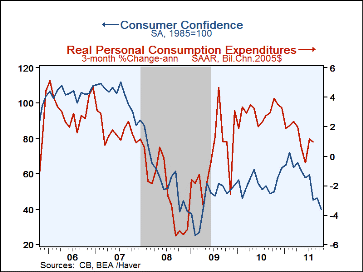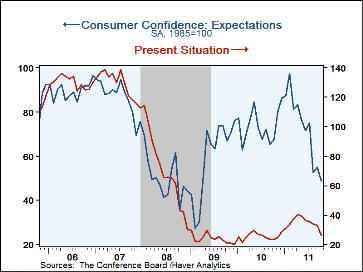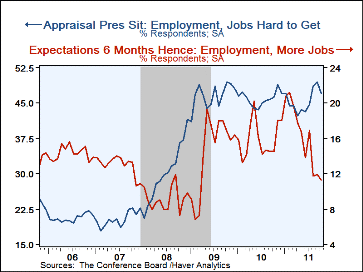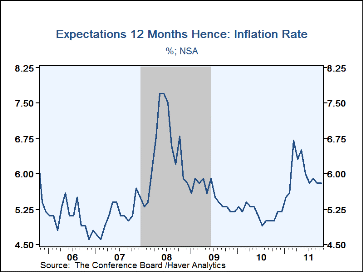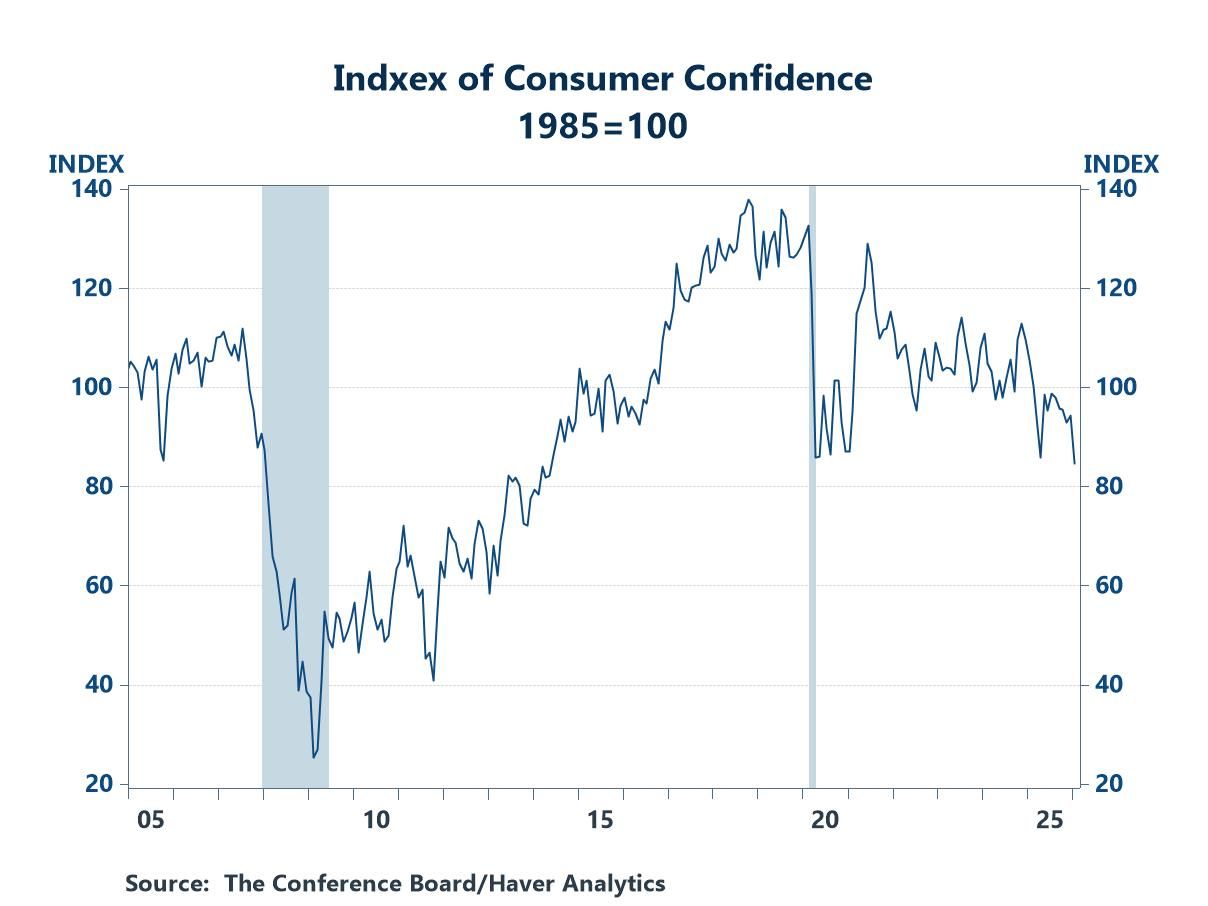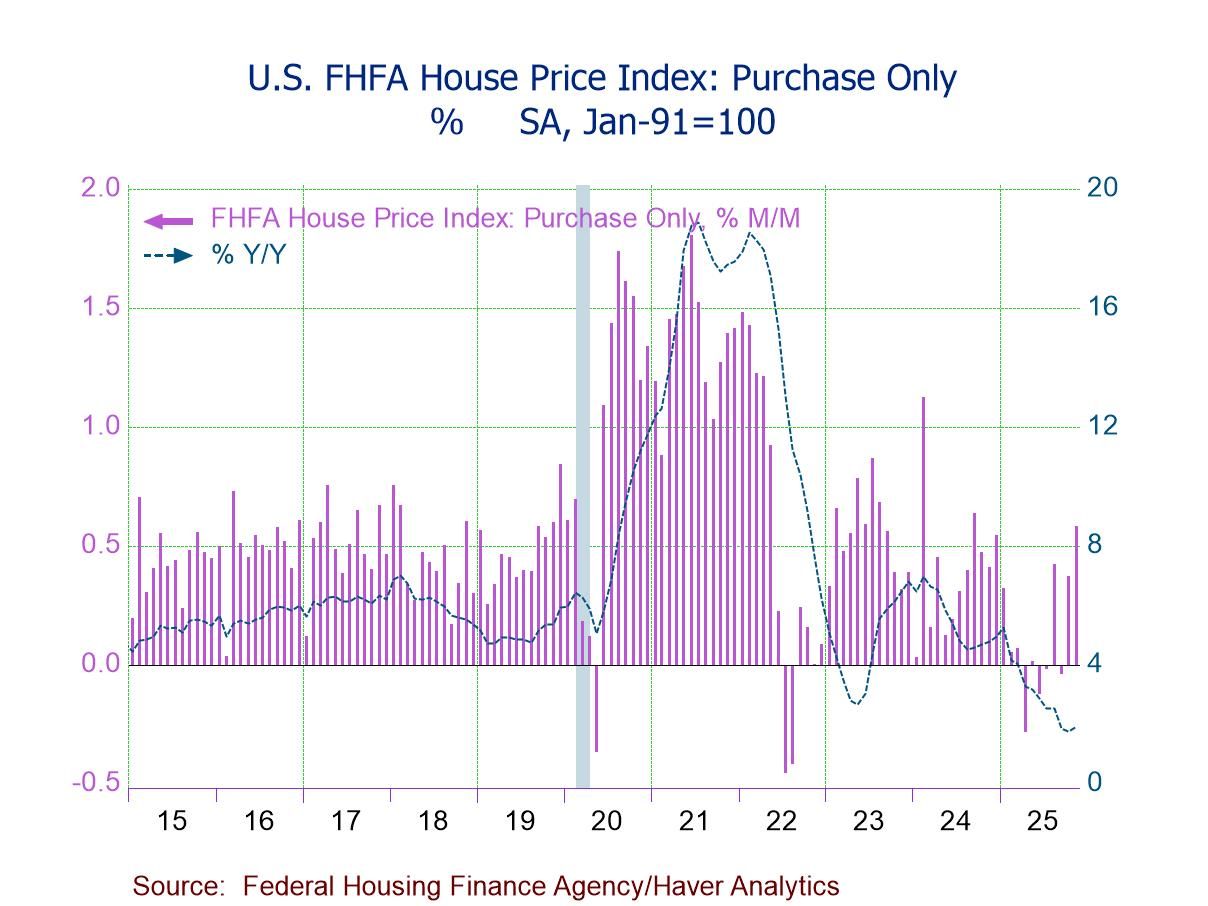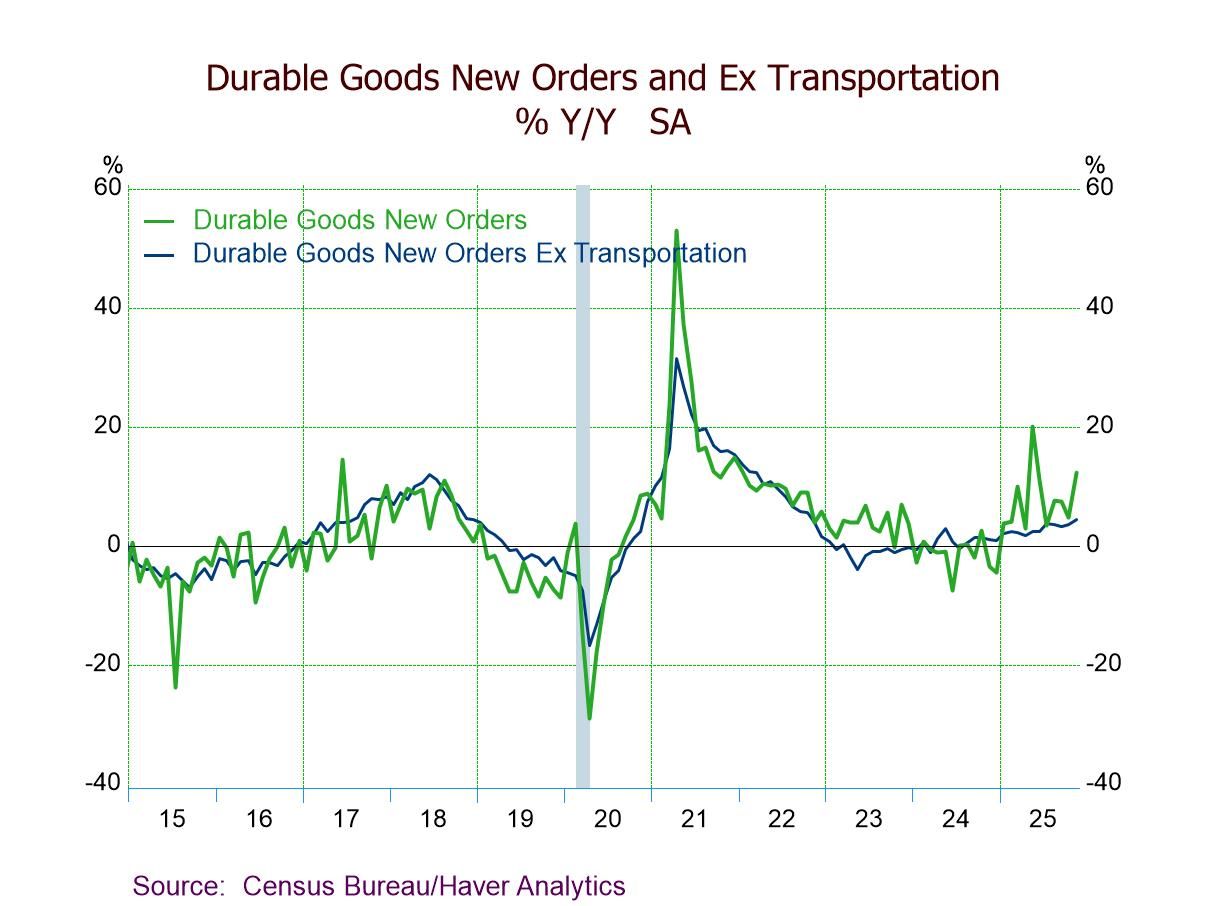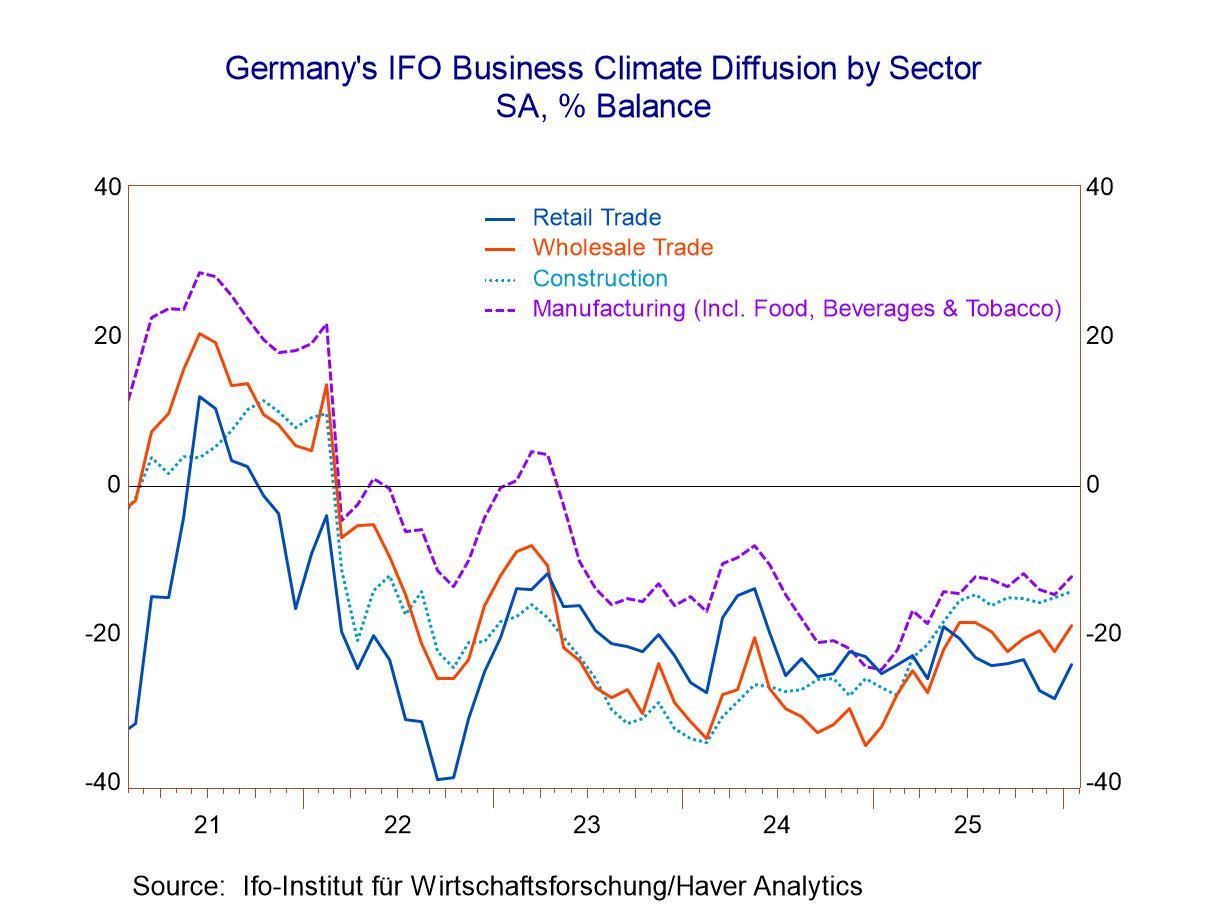 Global| Oct 25 2011
Global| Oct 25 2011U.S. Consumer Confidence Plumbs A New Low
by:Tom Moeller
|in:Economy in Brief
Summary
The Conference Board's October Index of Consumer Confidence reentered its downtrend. The index fell a sharp 14.2% m/m to 39.8 following a 2.7% September increase, revised from a negligible uptick. The latest figure was the lowest [...]
The Conference Board's October Index of Consumer Confidence reentered its downtrend. The index fell a sharp 14.2% m/m to 39.8 following a 2.7% September increase, revised from a negligible uptick. The latest figure was the lowest since March, 2009 and it was lower than Consensus expectations for a reading of 47.0. During the last ten years there has been 47% correlation between the level of confidence and the three-month change in real personal consumption expenditures.
This month, it was consumer's reading of the present economic situation that showed the largest decline. The index's 21.0% m/m drop to 26.3 was to its lowest since November of last year. The reading worsened as just 11.0% saw economic conditions as good but 43.7% felt they were bad. Jobs were seen as hard to get by a lessened 47.1% of respondents.
The expectations component of confidence fell a lesser 11.6% this month after the 5.2% September increase. The index level was off 49.9% versus its February peak. More than twice as many respondents thought that business conditions would worsen as improve. There was an even greater disparity between those who thought employment would worsen and those who saw improvement. A lessened 10.3% felt their income would rise, the least in twelve months.
Expectations for inflation in twelve months held at 5.8% versus the peak of 6.7% in March. A much fewer 43.5% thought interest rates would rise, the least in twelve months. Slightly fewer respondents foresaw higher stock prices and 53.4% expected a decline.
The Conference Board data can be found in Haver's CBDB database. The expectation figure is the AS1REPNA database.
The Effectiveness of Government Policy in Deep Recessions from the Federal Reserve Bank of Philadelphia is available here.
| Conference Board (SA, 1985=100) | Oct | Sep | Aug | Y/Y % | 2010 | 2009 | 2008 |
|---|---|---|---|---|---|---|---|
| Consumer Confidence Index | 39.8 | 46.4 | 45.2 | -20.2 | 54.5 | 45.2 | 57.9 |
| Present Situation | 26.3 | 33.3 | 34.3 | 11.9 | 25.7 | 24.0 | 69.9 |
| Expectations | 48.7 | 55.1 | 52.4 | -27.9 | 73.7 | 59.3 | 50.0 |
Tom Moeller
AuthorMore in Author Profile »Prior to joining Haver Analytics in 2000, Mr. Moeller worked as the Economist at Chancellor Capital Management from 1985 to 1999. There, he developed comprehensive economic forecasts and interpreted economic data for equity and fixed income portfolio managers. Also at Chancellor, Mr. Moeller worked as an equity analyst and was responsible for researching and rating companies in the economically sensitive automobile and housing industries for investment in Chancellor’s equity portfolio. Prior to joining Chancellor, Mr. Moeller was an Economist at Citibank from 1979 to 1984. He also analyzed pricing behavior in the metals industry for the Council on Wage and Price Stability in Washington, D.C. In 1999, Mr. Moeller received the award for most accurate forecast from the Forecasters' Club of New York. From 1990 to 1992 he was President of the New York Association for Business Economists. Mr. Moeller earned an M.B.A. in Finance from Fordham University, where he graduated in 1987. He holds a Bachelor of Arts in Economics from George Washington University.


